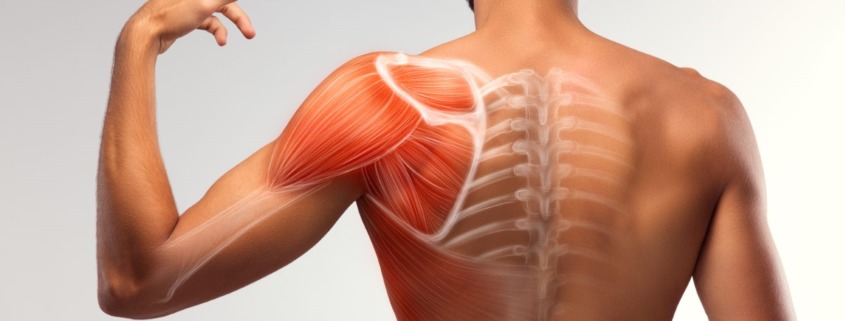Shoulder pain and stiffness is a common condition. The shoulder has a wide range of motion and is therefore the most mobile joint in the body. The shoulder acts as a hinge for the arm but is much more complex as it twists and rotates, moves in a circular motion, and moves up and away from the body. The shoulder relies on bones, ligaments, muscles, and tendons to work together for it to properly function.
A major cause of shoulder pain is rotator cuff tendinitis, also called impingement syndrome. Tendinitis affects the tendons and muscles that help move your shoulder joint. The tendons become inflamed or irritated.
Other causes of shoulder pain include:
- Arthritis
- Bone spurs
- Broken shoulder or arm bone
- Dislocated shoulder
- Frozen Shoulder
- Injury to overuse or repetitive use
- Pinched nerve in neck or shoulder
- Swollen bursa sacs or tendons
- Torn Cartilage
- Torn Rotator Cuff
Shoulder pain can be caused by injuries, arthritis, problems with ligaments, tendons, or fluid-filled sacs (bursa) that surround the shoulder joint. Shoulder pain can also be linked to problems with the cartilage, ligaments and bones that form the joint itself. Lack of muscle flexibility or strength, sports and previous injuries can also contribute to this painful condition.
Shoulder pain treatment may include:
- Physical Therapy
- Low Level Laser Therapy (LLLT)
- Myofascial Release Therapy
- Shoulder Joint injections
- Regenerative Medicine
Shoulder pain symptoms can vary. Often the pain can subside on its own within a few days or weeks. Sometimes the pain can become constant or radiate into other body parts, such as the neck, arm, and hands. You should contact a doctor if you experience inability to move your shoulder, lasting bruising, heat, and tenderness around the joint, or pain that persist beyond a few weeks of home treatment.
Patients with shoulder pain may experience:
- Swelling and Stiffness
- Redness and warmth to the touch
- Weakness or Instability
- Popping or crunching noises
- Limited range of motion
- Pain with movements



